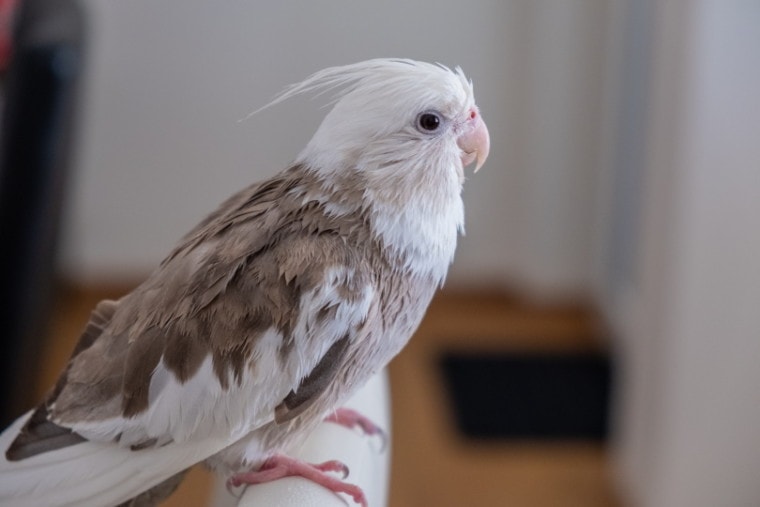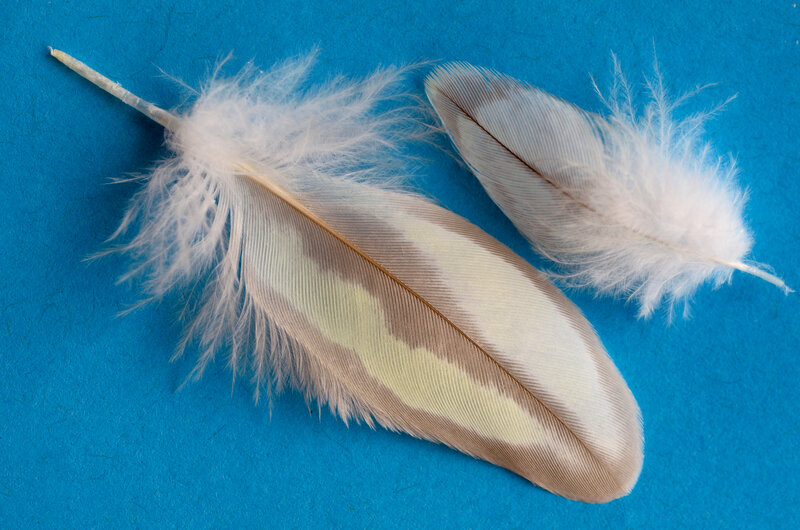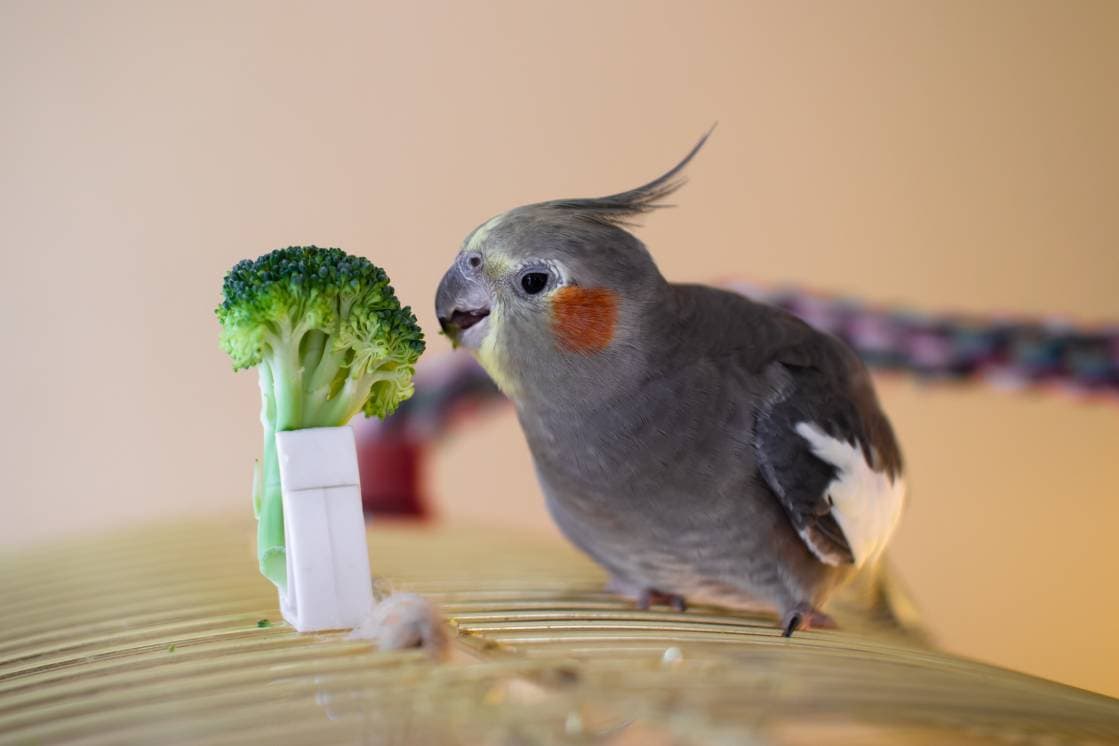
If you’re a first-time cockatiel owner, chances are you’re going to have a lot of questions during your bird’s first few years of life. One of the most common questions we get is in regards to molting. The first time your cockatiel loses many feathers at once can be very shocking, but it’s a completely normal process that many species of birds experience. Cockatiels will start molting when they’re 6-12 months old and after that, they will have molting periods that can last up to ten weeks and usually occur in the spring and fall months.
Keep reading to learn everything you’ve ever wanted to know about the cockatiel molting process.
What Is Molting?
Molting is simply the shedding of old feathers to make way for new ones. Birds molt just like snakes, and reptiles shed their skin. They need to molt every year to rid themselves of old or damaged feathers and also to keep their plumage in tip-top shape. This isn’t for aesthetics but to help them fly efficiently, regulate their temperature, attract a mate, and protect themselves.
When Do Cockatiels Molt?
Generally, a cockatiel’s first molt will occur when they’re between 6–12 months old.
Cockatiels will lose and renew single feathers during the year, keeping their feather healthy is an ongoing process. However, there are usually two intense periods of feather loss and renewal during the year, known as molting periods. Each molting period in the cockatiels can last up to ten weeks and usually occurs in the spring and fall months. The time of year they molt may depend on your local climate. Generally, your cockatiel will tend to molt earlier in the year if the weather is warmer.
The reason cockatiels renew feathers all year round is because they can’t afford to lose too many of their feathers at once. You can imagine how difficult it would be for your cockatiel to survive in the wild if they lost all their feathers at one time and were unable to fly until they grew back.

 What Should I Expect When My Cockatiel Molts?
What Should I Expect When My Cockatiel Molts?
Molting can be an exhausting process for your cockatiel. You should give them a little extra care and attention as they go through the molting process.
Allow them to sleep and rest as much as they need while they molt. Your usually friendly and outgoing bird might be feeling grumpy and stressed. Don’t worry about this too much as it is normal for them to feel this way during the molting process.
You might offer them a mist bath or shower to help remove the dry keratin coverings that are present on new feathers. Light mistings will make these feathers easier to preen. Always give them a choice of whether or not they’d like to be misted. Not all cockatiels enjoy it, so you shouldn’t force it if they’re not into it.
Your bird may not be able to reach certain spots on its body, such as its head or neck. This can make the itchiness that comes with molting quite unbearable. You can help by offering scratches in those areas only if your bird gives you the go-ahead. If they display any signs of aggression, back off.
Make sure the room your cockatiel is kept in stays at a warm temperature. They are very vulnerable to temperature changes, especially as they molt, so it’s essential to keep the room at around 70-80°F.
You’ll also need to ensure your bird is getting proper nutrition. Of course, ideally, they’d be getting adequate nutrition all year round, but it is especially important to pay extra close attention to their eating habits as they molt.
Growing new feathers requires a ton of energy and the right nutrients. When your cockatiel is molting, their bodies have an increased need for protein, calcium, and iron.

Is Molting Painful?
Molting isn’t a painful process, but it can make your cockatiel more irritable and grumpier. When their feathers begin to grow back, they will be quite itchy, which can further add to their irritability.
What Is Abnormal Molting?
Abnormal molting refers to any part of the molting process that isn’t to be expected. It usually happens because your cockatiel is sick, stressed out, or confused about the seasons.
If you believe your cockatiel is having an abnormal molt, a visit to the vet is in order.
Cockatiels are generally healthy birds, but when something goes wrong, you need a resource you can trust. We recommend The Ultimate Guide to Cockatiels, an excellent illustrated guide available on Amazon.
This detailed book can help you care for your cockatiel through injuries and illnesses, and it also offers helpful tips on keeping your bird happy and healthy. You’ll also find information on everything from color mutations to safe housing, feeding, and breeding.

Conclusion
Molting is a completely normal process and an essential part of your cockatiel’s development. In most cases, it is nothing to worry about, but if you ever have any concerns, don’t hesitate to reach out to your avian vet for advice. Sometimes a sudden loss of feathers can signify a more serious problem, so it’s never a bad idea to have your vet on speed dial just in case.
Featured Image Credit: Zdenka Kincel, Shutterstock









